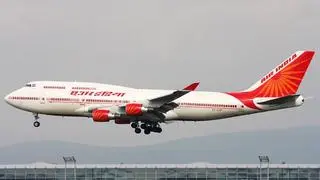With a focus on catering to the huge predictions in passenger traffic and protecting passengers from airport monopolies, greenfield airports have been allowed to come up in key cities of Delhi, Mumbai, and Goa.
The success of these new airports is contingent on the ability to inter alia, attract international traffic. This by its very nature requires an amendment to Bilateral Air Service Agreements (BASAs) that provide market access to airlines.
Looming challenge
As India continues to build greenfield airports and as the second airports for Delhi, Mumbai and Goa come closer to fruition, this topic will gain much traction. Moreover, as India grows, foreign airlines — including those reliant on 6th freedom traffic such as the Gulf airlines — will push for enhanced access while India’s airlines are likely to, in most cases, want the current capacity to remain and ask for a rebalancing of capacity entitlements. Strong positions on both sides of the aisle are almost certain. A challenge is looming.
For any nation, bilateral flying rights are strategic assets. Because of the way these are structured, they have a direct impact on jobs. Indeed, nations such as the USA, Germany and Canada have guarded their domestic and international markets too, in some cases with measures that are strict and that benefit their own populace. Canada for example continues to restrict access to the Gulf airlines to date. This has helped Air Canada expand its services to India and elsewhere around the world. So much so that despite the pandemic, Air Canada currently operates 20 weekly non-stop flights to Delhi from various points of call in Canada.
For India, its oldest BASAs are with the UK and Southeast Asian nations, namely Thailand, Hong Kong, Singapore and Japan.
In the last two decades, India has negotiated fresh BASAs with a host of nations. But there was allegedly a contravention of norms in some cases. India – UAE BASA’s come to mind, wherein despite the UAE being one nation, India negotiated individual BASA with the emirates of Dubai and Abu Dhabi. While the former permitted Emirates and Fly Dubai to carry a significant amount of 6th freedom traffic to and from India, it also gave Indian airlines an opportunity to carry large volumes of original and destination traffic to and from India to Dubai.
So much so that pre-pandemic, Dubai and India-based airlines had completely utilised their share of seat entitlements as per the existing BASAs.
The BASA dilemma
As India seeks to renegotiate BASA’s there are bound to be strong positions for and against such a decision from within the aviation industry in India. Ironically, it may be one of the few areas where legacy airports and airlines may come up with a joint lobbying effort.
Expansion or amendment of BASAs requires extensive engagement and given India’s market potential, liberal bilateral treaties are much sought-after by countries, especially city-states in the Gulf where aviation is critical to the overall economy.
Yet, for BASAs to be fair and equitable, items of equal value need to be included. This is where inter alia, the emergence of nationalism and health-security protocols are likely to impact market access and the way governments think about BASAs.
BASAs that is tilted to one side effectively limit the ability of Indian airports and airlines to grow and compete for traffic to key global markets, consequently impacting the entire aviation value chain and the local and national economy. Yet, this also has to be balanced with the fact that the Indian traveller base demands better services, superior products, better fares and greater access which have to be considered. It has been argued by some that curtailing better or more comfortable products or aircraft (which Indian air carriers may not be able to offer, at least in the current market) from entering India may result in detriment to the travelling public.
In order to include greenfield airports as points of call, foreign states may require their pound of flesh in return. This may include enhanced seat entitlements and additional points of call in India. The government of India will have to navigate through this process with multiple nations in order to make these greenfield airports viable in the long term. India’s greenfield airports and BASAs are sure to be a topic of much debate in the months to come.
Vinamra Longani is the Head of Operations at Sarin & Co. A law firm specialising in aircraft leasing and finance. Satyendra Pandey is the Managing Partner at aviation services firm AT-TV.







Comments
Comments have to be in English, and in full sentences. They cannot be abusive or personal. Please abide by our community guidelines for posting your comments.
We have migrated to a new commenting platform. If you are already a registered user of TheHindu Businessline and logged in, you may continue to engage with our articles. If you do not have an account please register and login to post comments. Users can access their older comments by logging into their accounts on Vuukle.